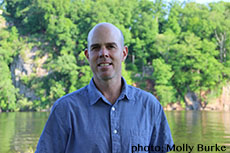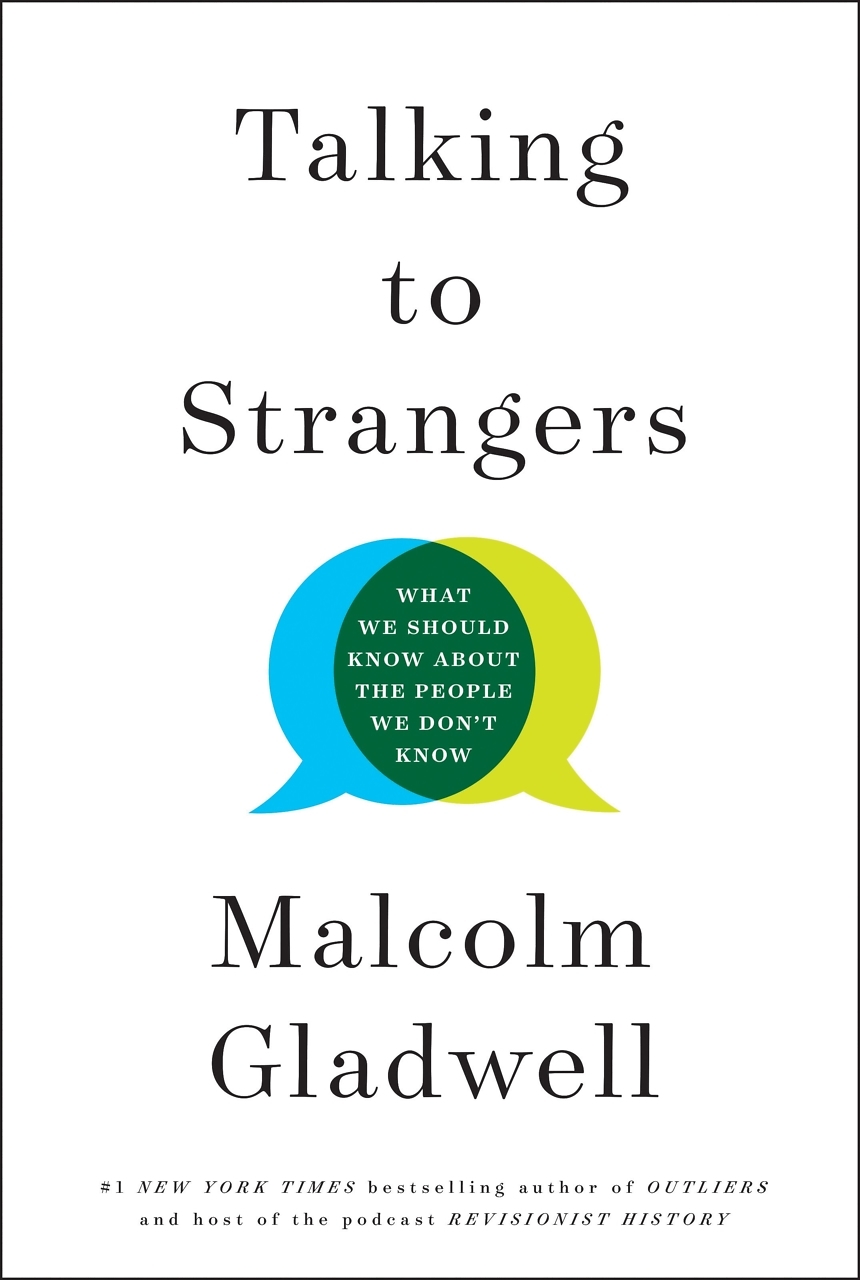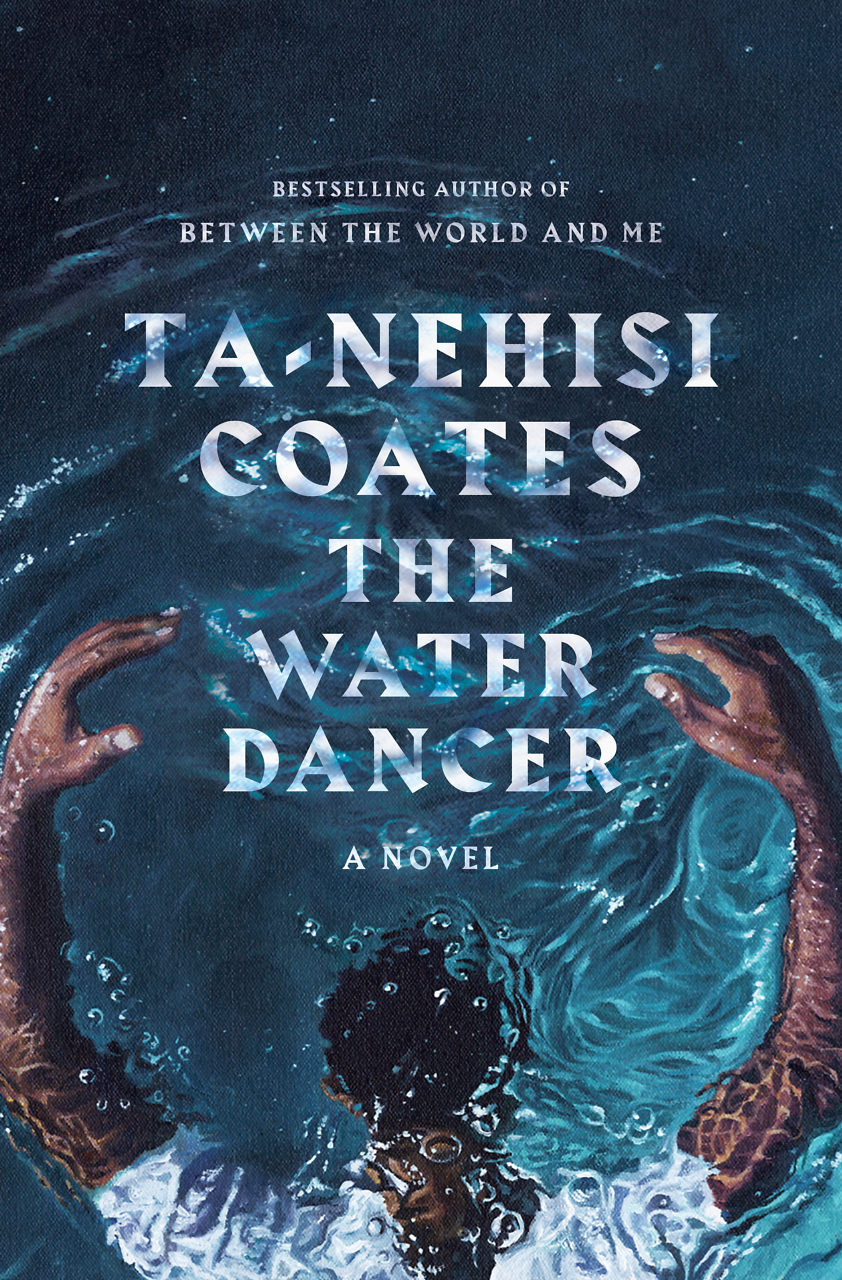Restless Cravings
With Into the Savage Country, Shannon Burke delivers a grand adventure in the tradition of Jack London
When he leaves St. Louis to join a fur-trapping expedition, William Wyeth, the narrator of Shannon Burke’s new historical novel, Into the Savage Country, seeks more than riches: “I had come to the west to satisfy some restless craving, to sound the depths inside myself, and if I did not do the thing properly I feared I would never be content.” Wyeth finds all he’s looking for, and much more, in a deftly written story of love and adventure that evokes the classic tales of Jack London and Robert Louis Stevenson.
 Into the Savage Country begins in 1826. Twenty-one-year-old Wyeth has migrated from the East to St. Louis, hoping to seize the chance to see the West while it’s still wild. Wyeth is a classic adventure tale’s protagonist: young, inexperienced but capable, loyal to a fault, and driven both to test and to prove himself in a wilderness full of perils and wonders. “Since I was a boy I’d known I was made of different stuff from my brothers. They were born to the plow and the pew while I craved the forest and woods and the vast, wild spaces,” Burke writes. “For better or for worse, I was fated to test my mettle in the west. If I’d not make a fortune, I thought, I’d live my life up to the hilt and satisfy that inner craving and have something to talk about in my dotage.”
Into the Savage Country begins in 1826. Twenty-one-year-old Wyeth has migrated from the East to St. Louis, hoping to seize the chance to see the West while it’s still wild. Wyeth is a classic adventure tale’s protagonist: young, inexperienced but capable, loyal to a fault, and driven both to test and to prove himself in a wilderness full of perils and wonders. “Since I was a boy I’d known I was made of different stuff from my brothers. They were born to the plow and the pew while I craved the forest and woods and the vast, wild spaces,” Burke writes. “For better or for worse, I was fated to test my mettle in the west. If I’d not make a fortune, I thought, I’d live my life up to the hilt and satisfy that inner craving and have something to talk about in my dotage.”
Burke’s narrative is peppered with real historical figures—William Henry Ashley, Jedediah Smith, and Jim Bridger, among others—whom he includes alongside his own invented cast of trappers, entrepreneurs, natives, and pioneers. Wyeth’s closest companions are Ferris, a doctor’s son who wants to see the West in its pristine state so he can record its wonders in oil paintings; and Layton, a wealthy and charismatic scoundrel determined to make a name for himself by leading his own trapping brigade deep into Crow territory to plunder the untapped drainages of Wyoming’s Wind River Range.
Layton’s Market Street Brigade finds a king’s ransom of pelts, but their most daunting challenge will be getting back to St. Louis without being killed for their hard-earned fortune. Wyeth and his friends survive perilous encounters with charging buffalo, grizzly bears, Crow, Blackfoot, and Sioux, British trappers, Mexican settlers, and the elements themselves. Wyeth also finds love in the form of Alene Bailey, a beautiful French-Canadian widow. There are death-defying escapes, treacherous betrayals, thrilling hunts, and deadly battles. Fortunes and friendships are made and lost. Along the way, Burke evocatively renders the West as it once was.
 Into the Savage Country marks a significant departure for Shannon Burke, a Knoxville writer whose first two novels, the gritty and acclaimed Safelight and Black Flies, drew on his experiences as a New York City paramedic in the late 1990s. “I grew up reading adventure novels like Kidnapped and Treasure Island and Robinson Crusoe and White Fang,” Burke said in a recent interview. “I love books like that and I had always wanted to try my hand at something along those lines.” With Into the Savage Country, Burke has delivered a brilliant throwback novel which honors its influences while still feeling fresh and original. Even the novel’s cover art—an oil painting of a trapping camp beneath a snowy peak—reverently evokes old editions of the classic novels that inspired it.
Into the Savage Country marks a significant departure for Shannon Burke, a Knoxville writer whose first two novels, the gritty and acclaimed Safelight and Black Flies, drew on his experiences as a New York City paramedic in the late 1990s. “I grew up reading adventure novels like Kidnapped and Treasure Island and Robinson Crusoe and White Fang,” Burke said in a recent interview. “I love books like that and I had always wanted to try my hand at something along those lines.” With Into the Savage Country, Burke has delivered a brilliant throwback novel which honors its influences while still feeling fresh and original. Even the novel’s cover art—an oil painting of a trapping camp beneath a snowy peak—reverently evokes old editions of the classic novels that inspired it.
But Burke’s uniquely modern perspective on the past and his patient attention to character development lift the novel above the level of a mere plot-driven Western with stock characters. The most compelling of his adventurers is the mercurial Henry Layton, whose complex, difficult personality seems to embody the inherent conflicts and paradoxes of American identity in the age of exploration and Manifest Destiny. “He was one of those men who work excessively to prepare for success and worthwhile ventures and then sabotage their own creations in a self-destructive impulse,” Wyeth observes. “And yet—and this is strange—I still believed Layton meant well. … Layton had many fine and noble qualities, but these qualities were at times completely swamped by impatience, suspicion, and irritability.” Both heroic and contemptible, Henry Layton is a fit metaphor for the United States in its early decades, when many great conquests were made without much regard for their consequences, all while setting the stage for a series of self-destructive catastrophes in the not-so-distant future.
Even William Wyeth—a humbler man—unwittingly represents the hypocrisy and rapaciousness of the early trappers and explorers. Wyeth acknowledges the impact of settlement and the slaughter of wildlife on the environment, but he also takes unrepentant pleasure in hunting buffalo and taking hundreds of beaver pelts in hopes of returning to St. Louis a rich man. He speaks with awe and admiration of the “natives”—especially a fierce Blackfoot chieftain called Red Elk—but participates without apparent reluctance in a bloody Crow attack on Red Elk’s band. Only Ferris, the soulful artist-adventurer, exhibits any ambivalence about the fate of the Native Americans.
Women barely exist in the so-called Savage Country, or even at its edges. Burke does his level best to make Alene Bailey a meaningful presence as she mourns her husband and fends off the advances of Wyeth, Layton, and others. But as James Brown would say, this is a man’s man’s man’s world. It’s not long before Wyeth runs off in search of adventures with the boys, indirectly expressing the plight of all nineteenth-century women, whose fates and identities were defined by the men to whom they were or weren’t attached.
But these themes lie deep in the subtext of Into the Savage Country, a novel that, while historically accurate, is chiefly a tale of friendship, pluck, and ingenuity. Furthermore, with the exception of the fairly gory attack on Red Elk’s band, Into the Savage Country is mostly free of the graphic violence and pessimism that’s characteristic of so-called revisionist Westerns like Cormac McCarthy’s Blood Meridian, Thomas Berger’s Little Big Man, or Charles Portis’s True Grit. There’s much to be said for a grand historical adventure with a suspenseful plot revolving around a young man’s determination to find love and make his fortune in a hostile world. As Wyeth himself remarks, “There is little that ails a man, particularly a St. Louis dandy, that is not improved by a season in the mountains.” Into the Savage Country is a perfect novel for those who, like Burke, grew up loving the novels of Stevenson and London, and a perfect opportunity to introduce younger readers to the pleasures of old-school adventure.

Ed Tarkington holds a B.A. from Furman University, an M.A. from the University of Virginia, and a Ph.D. from the creative-writing program at Florida State University. His debut novel, Only Love Can Break Your Heart, is due this fall from Algonquin Books. He lives in Nashville.


